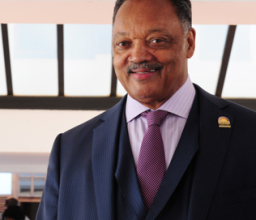Sheinbaum demands release of Mexican activists detained by Israel – BorderReport

Sheinbaum Calls for the Release of Mexican Activists Detained in Israel
Who, What, When, Where, Why, and How:
Claudia Sheinbaum, the former mayor of Mexico City and current presidential candidate, has publicly demanded the immediate release of Mexican activists detained by Israeli authorities. This plea follows the activists’ involvement in a protest against the Israeli government’s actions in Gaza. As tensions escalate in the region, Sheinbaum’s stance highlights a growing concern over civil liberties and international human rights.
A Rising Tension in Israel and Gaza
The conflict between Israel and Palestinian groups has escalated significantly, with reports indicating that nearly 2,000 Palestinians have died since the resurgence of violence according to the Palestinian Health Ministry. The humanitarian crisis in Gaza has garnered international attention, leading to widespread protests both within and outside of Israel. Activists are rallying against what they perceive as human rights violations, advocating for peace and justice amid the turmoil.
Demonstrations have surged in major cities worldwide, including Mexico City, where citizens have shown solidarity with the Palestinian cause. The involvement of Mexican activists in protests in Israel has underscored the global nature of this crisis, revealing how issues of human rights resonate far beyond national borders.
Sheinbaum’s Position and Political Context
Claudia Sheinbaum’s demand for the activists’ release is not merely a personal endeavor; it also reflects her political ambitions as she campaigns for the presidency of Mexico. As a prominent member of the Morena party, Sheinbaum has positioned herself as a champion of social justice and human rights, appealing to a younger demographic increasingly concerned about global issues.
In a recent statement, Sheinbaum emphasized that the activists were exercising their right to free speech. She stated, “Detaining individuals for expressing their beliefs is against the very principles of democracy.” This proclamation aligns with her political narrative, presenting her as a defender of civil liberties—an essential issue for many voters as they head toward the 2024 presidential elections.
The Detained Activists
The detained activists were part of a larger group that organized a demonstration in Tel Aviv, calling for an end to military actions against Palestinians. While specific details about the individuals remain limited, their detention has raised alarms among various human rights organizations. Amnesty International and Human Rights Watch have condemned such detentions, urging global leaders to advocate for the rights of activists worldwide.
The activists’ plight has drawn parallels to other historical instances where individuals have faced repercussions for their political expressions. This situation reflects a broader trend of escalating tensions surrounding free speech and human rights in numerous countries, particularly in politically charged environments.
International Reactions and Implications
Sheinbaum’s demand for the release of the activists has sparked discussions in diplomatic circles, highlighting the potential implications for Mexico’s foreign policy. Analysts suggest that Mexico’s position on this issue could influence its relations with both Israel and the broader Middle Eastern region. As an influential Latin American country, Mexico’s foreign policy can set precedents for other nations in the region.
According to a report by the Pew Research Center, 62% of Mexicans believe that the government should take a more active role in international humanitarian issues. This sentiment aligns with Sheinbaum’s stance, indicating a potential shift in Mexico’s foreign policy if she were to win the presidency. Such a change could position Mexico as a more vocal advocate for human rights on the international stage.
The Broader Context of Activism in Mexico
Activism has a rich history in Mexico, with citizens frequently taking to the streets to protest against government policies, corruption, and human rights violations. The current situation regarding the detained activists serves as a reminder of the fragile nature of civil liberties in many parts of the world. As Sheinbaum advocates for their release, she taps into a broader narrative that resonates with many Mexicans who value free expression and justice.
The historical context of activism in Mexico includes significant movements against state repression, such as the 1968 Tlatelolco massacre, where students protesting for democracy were killed. This history has fostered a culture of resistance, making issues of civil rights and freedoms particularly salient among the Mexican populace.
Public Support and Mobilization
Public opinion surrounding the detained activists appears to be largely supportive. Social media has emerged as a powerful tool for mobilization, with hashtags related to the activists’ plight trending in Mexico. Many citizens are leveraging platforms like Twitter and Facebook to express solidarity, further amplifying Sheinbaum’s message.
A recent poll conducted by El Financiero revealed that 73% of respondents expressed concern over the treatment of activists globally, indicating a growing awareness and activism among the Mexican populace. This shift towards international solidarity could play a significant role in shaping future protests and political discourse in Mexico.
The Future of Mexican Activism
As the situation develops, it remains to be seen how the detained activists will be treated by Israeli authorities and what implications their circumstances may have for Mexican politics. For Sheinbaum, this moment presents both an opportunity to advocate for human rights and a critical juncture in her political career.
The intersection of global issues and local politics highlights the importance of international solidarity in addressing human rights abuses. With Sheinbaum at the forefront of this discourse, the future of activism in Mexico may take a more pronounced stance on global humanitarian issues, potentially leading to a shift in how Mexico engages with international human rights advocacy.
FAQ
Q: Who is Claudia Sheinbaum?
A: Claudia Sheinbaum is the former mayor of Mexico City and a presidential candidate representing the Morena party. She is known for her focus on social justice and human rights.
Q: What led to the detention of the Mexican activists?
A: The activists were detained during a protest in Tel Aviv, advocating against the Israeli government’s military actions in Gaza.
Q: What is the current situation regarding the activists?
A: As of now, the activists remain detained, and Claudia Sheinbaum has called for their immediate release, highlighting the importance of free speech.
Q: How does public opinion in Mexico view the situation?
A: A significant portion of the Mexican public supports the activists and is concerned about their treatment, with many expressing solidarity through social media platforms.
Source link

